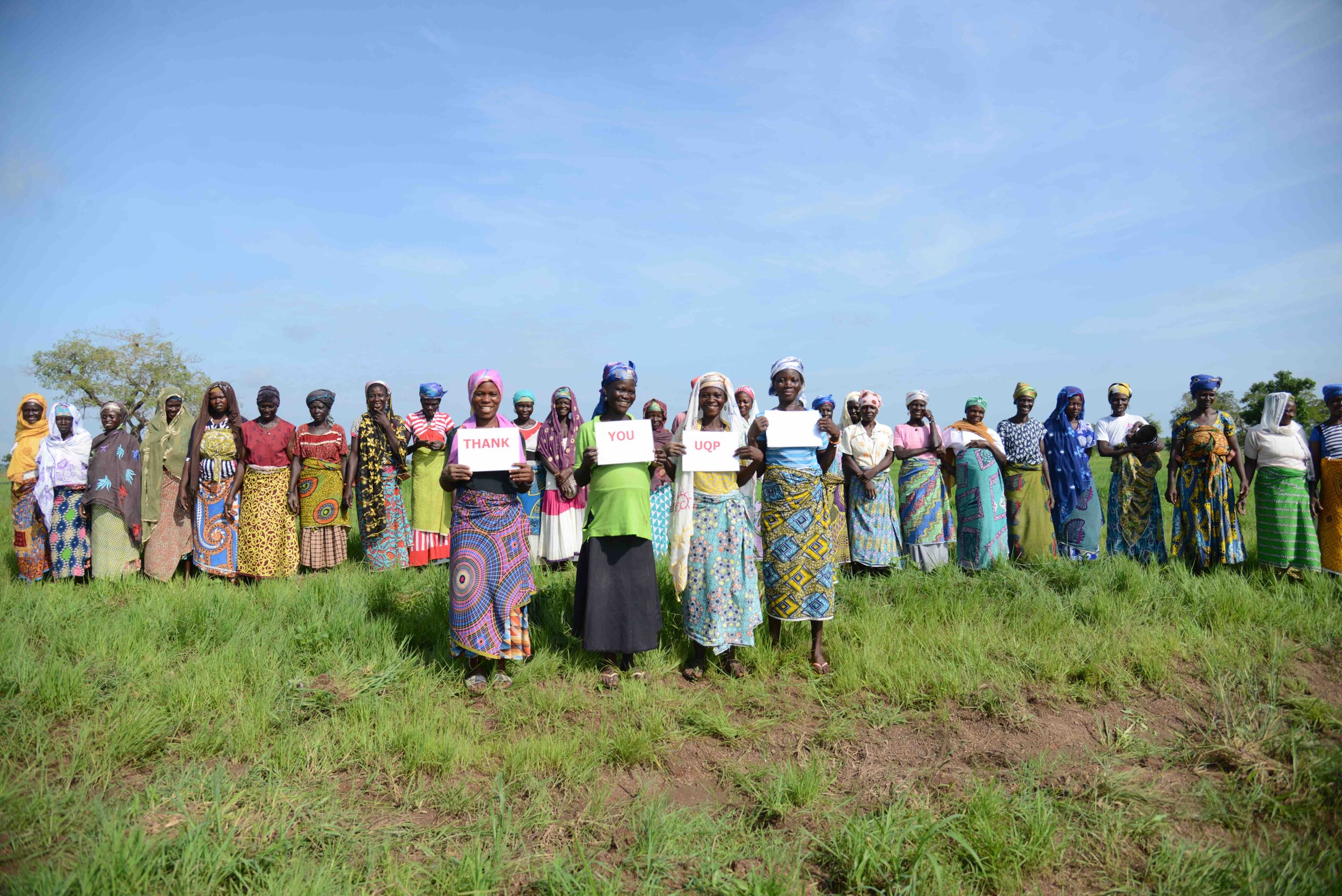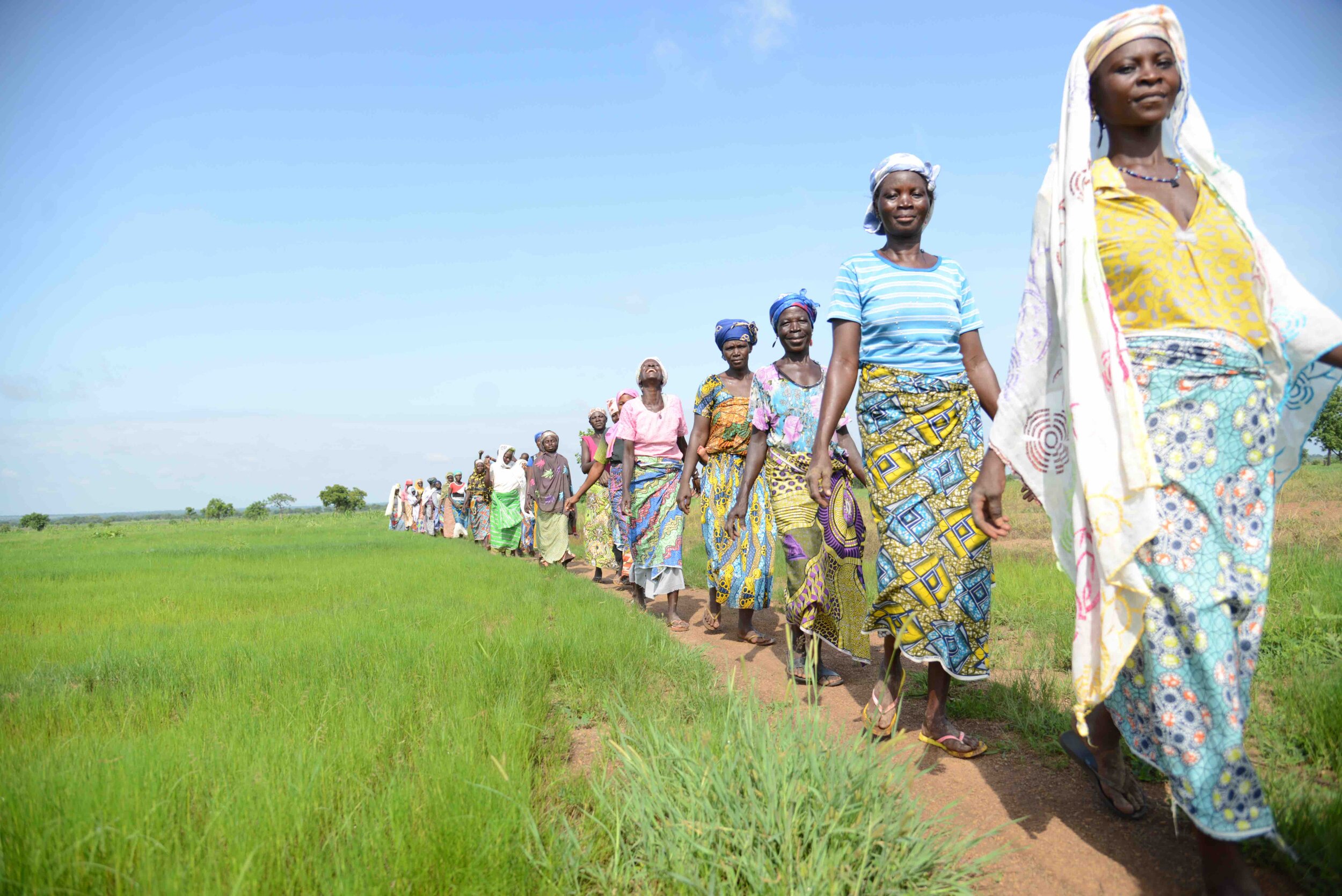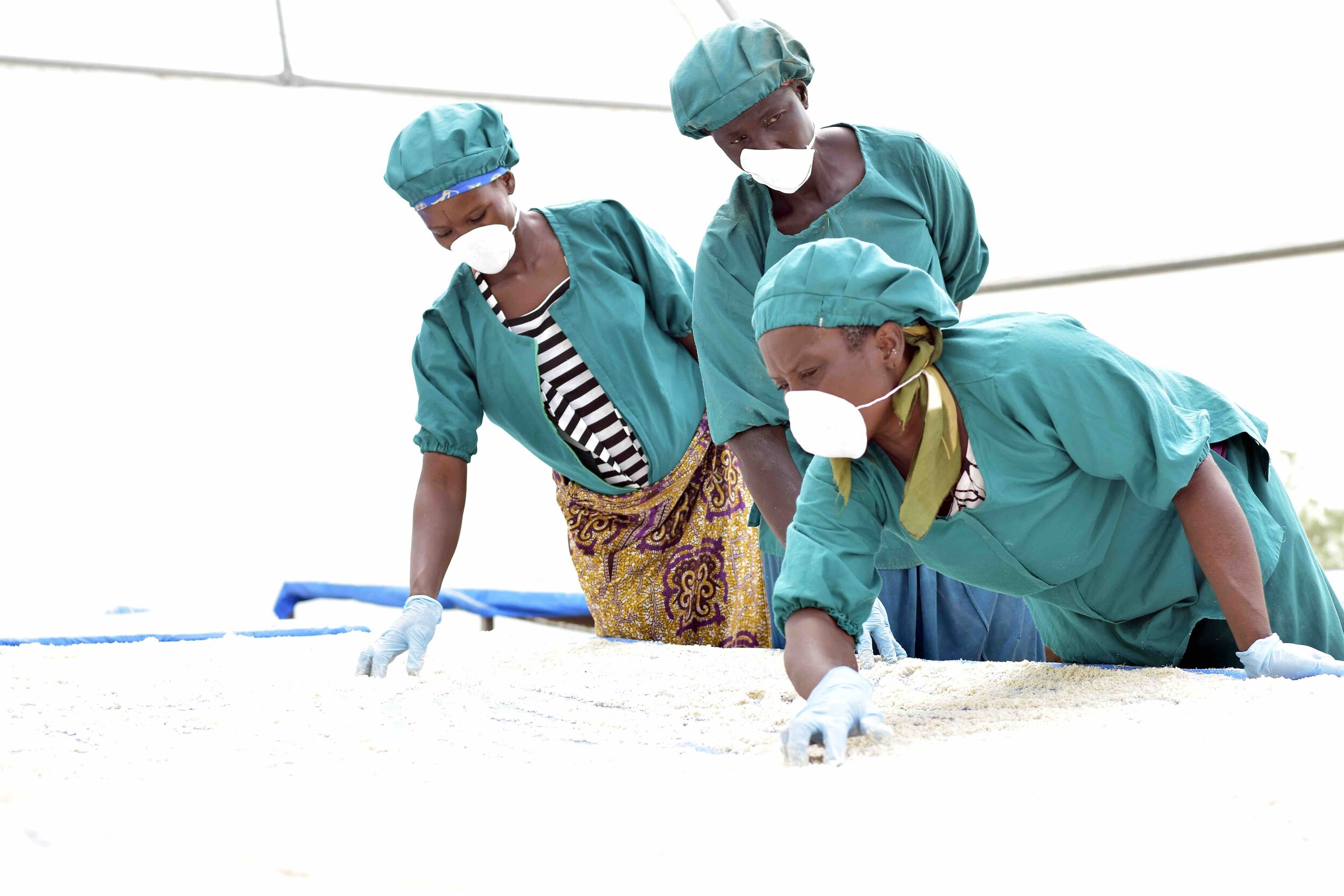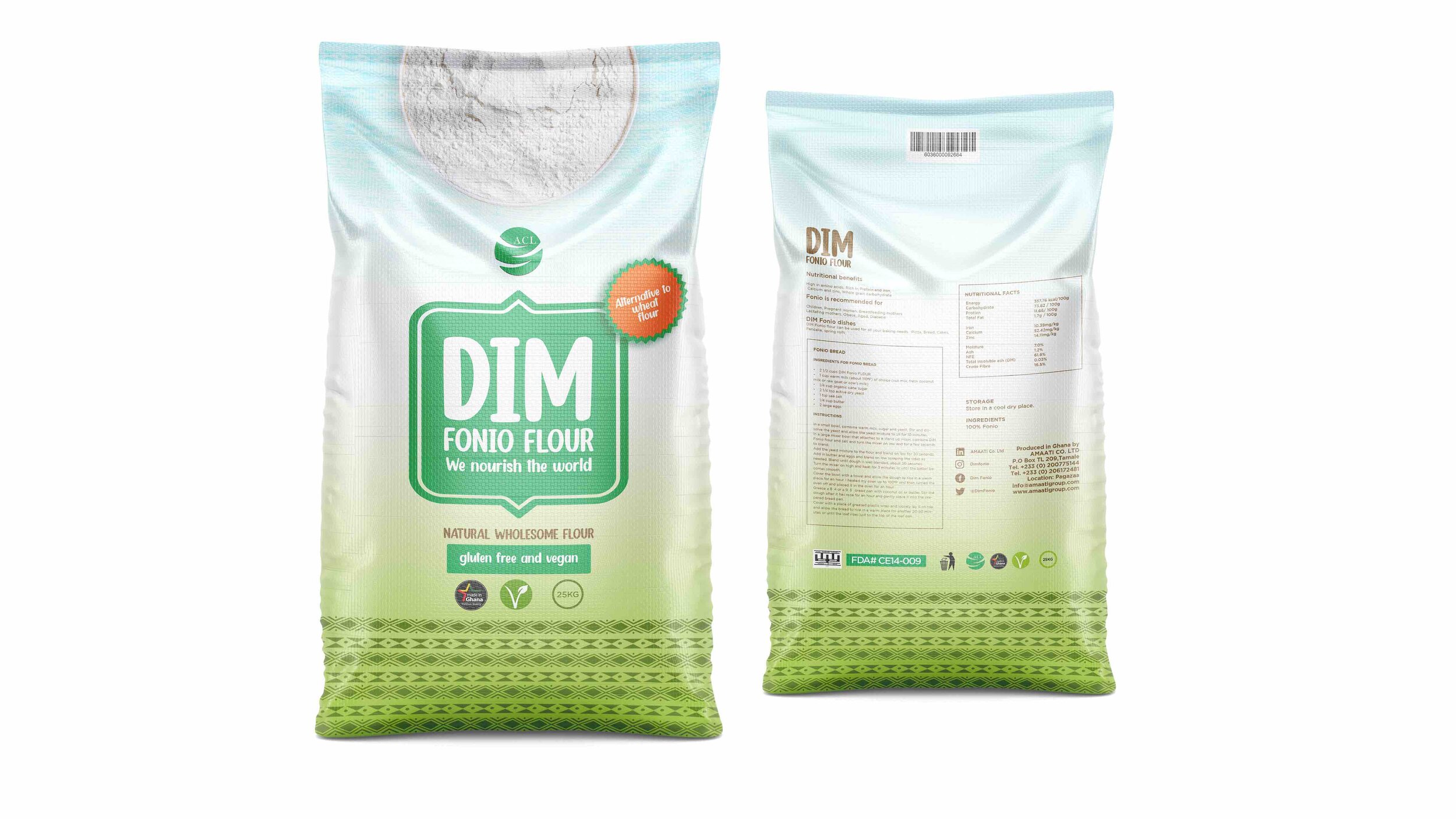LIONESS WEEKENDER COVER STORY
AMAATI Co. Ltd, an agri-business processing Fonio to empower small-scale women farmers
Salma Abdulai is the Co-Founder and CEO of AMAATI Company limited, a company that reflects her experience and passion for agriculture and social consciousness. She has her background in Agricultural Economics and has 10 years of experience working on different projects with International non-profit organizations. Her extensive experience in the agriculture sector is particularly focused on working with small scale rural farmers and women groups across Africa. She has managed AMAATI CO. Ltd since 2013 to become profitable, an agri-business company she co-founded which is into the processing and marketing of Fonio for local and export market.
Lioness Weekender spoke to the impact driven founder of AMAATI to find out more about her unique entrepreneurial journey and her vision for the future of the business.
What does your company do?
AMAATI is using a market led approach to revive Fonio on community degraded lands. We support landless vulnerable women in rural savannah to grow Fonio on community abandoned lands which are degraded by providing farming support services. Fonio is drought resistant, matures in eight weeks (compared to 16 weeks for maize, rice) and harvested twice in a season, grows on marginal lands, and continues cultivation for three years, regenerates the soil and women can grow Fonio and other food crops. We buy the Fonio at guaranteed market prices at farm gate. AMAATI then processes it into different product forms for local and export markets.
What inspired you to start your company?
Growing up in rural savannah I experienced first-hand the plight of women in my village and in my immediate environment (home) where women serve only as labour on men’s farms for their livelihood. The opportunity to survive throughout the year wasn’t possible with the income they received from this labor work. I thought this was just a challenge in my community, until I started working and had the opportunity to travel. I realized that most women in rural savannah had no access to fertile lands due to culture and tradition. The only available lands were degraded lands which couldn’t support food crop cultivation thereby compromising food security. Fonio was an indigenous food that had been neglected, yet it was the only crop that could grow very well on marginal lands without fertilizers. To reduce the plight of women in our society where this phenomenon has become a tradition, we decided to support rural women to revive Fonio in the savannah region where there is vast majority of degraded lands that are abandoned.
Why should anyone use your service or product?
AMAATI is the only company in Ghana that has identified a marketable indigenous cereal that can be revived and promoted to benefit local farmers and potentially other customers. This company is located at the heart of the northern region that is most suitable for the production and scaling up of this native crop.
This innovation is special from other products because it focuses more on sustainable agriculture and livelihoods which ensures long term agricultural activities, as well as healthy agro-ecosystems with minimal inputs for crop productivity. Fonio is resilient to the impacts of climate variability because it has low water requirements and can withstand a wide range of weather conditions. As this innovation grows more farmers will diversify. Crop diversification is a key strategy for resilience to climate change.
DIM Fonio is extremely versatile and can be a substitute to most cereal grains, including rice, wheat, oats, and quinoa. Due to its rich nutritional values and unique dietary properties (gluten free and sugar free), DIM Fonio is considerably different from its competitors. This allows AMAATI to target specific categories where other products cannot address their needs. These categories are diabetics, the aged, and the obese. One of our key differentiators is the indigenous root. As Africa’s urban population is growing, people lose access to traditional indigenous ingredients such as Fonio which cannot be found in supermarkets. We provide excellent customer service, keeping close contact with our clients through social media, phone, and text messages, setting us apart from our competitors and providing us with a 70% repeat purchase rate.
Tell us a little about your team
Team AMAATI is made up of a blend of young and dynamic team members and a group of middle to older women processors who blend and work towards achieving our mission (80% women and 20% men). The team is led by myself, Salma Abdulai, as the Chief Executive Officer, and a board of five which has a membership which is 60% female.
There is a clear line of authority established and every staff member knows who is responsible for who and for what. Staff members at AMAATI are engaged on a weekly basis and everyone is on the same pedestal as to the level of the company’s achievement and a clear path designed to achieve our goals. AMAATI culture on creating impacts has been embodied by all staff and this has created an environment of working not only for salary, but satisfaction derived from touching lives.
Share a little about your entrepreneurial journey. And do you come from an entrepreneurial background?
I come from a rural background in Northern Ghana where my father was farming and my mother mostly either helped on my father’s farm or worked as labor or trading to make income to take care of the house and children. Growing up I had always been looking out for a way to reduce the suffering my mum and other women in rural savannah were going through. From university, a lecture mentioned the nutritional and economic benefits of Fonio (which was available in my village) and how it was a food secured crop and had immense environmental value. It immediately awakened my passion to explore how Fonio could alleviate the suffering of women in my area. From further research I realized it could grow on marginal soil without fertilizer application. I first set out to register an NGO to support women to cultivate Fonio on these degraded lands in their communities that are abandoned.
The first set of women were 10 landless women who upon negotiating with the chief for two days eventually released 10 acres of the degraded land to the women to cultivate Fonio. After the farming season they harvested 1200kg of Fonio and the reality dawned on me that there was little economic value after several attempts to get a market for it. So, I decided to set up a processing unit where this raw Fonio could be processed for the market. This happened after re-registration as a social enterprise company. This is how we got started and the rest they say is history.
What are your future plans and aspirations for your company?
AMAATI is focused on becoming a key player in the global Fonio market. We are investing in our supply chain to increase our supplies by 500%, improve technology enhancement, and increase our market penetration by 70% and 30% for local and export market respectively. This will increase our smallholder base to 100,000 farmers in the next five years.
What gives you the most satisfaction being an entrepreneur?
On a visit to one of the communities to mobilize Fonio in 2018, we met a young girl in the district town who upon seeing me called my name out loud in the public and said “my mother is waiting for you to come and buy Fonio, so that she can prepare me for school. I asked the young girl which community? She said “Mongoasi”. We decided the following day to go to that community first, knowing that the young Senior High School girl’s education is dependent on the income her mother will receive from us. This is just one example of the satisfaction and motivation I derived from this innovation.
What's the biggest piece of advice you can give to other women looking to start-up?
The time to start is now, the world is waiting for their innovations to liberate us from some of the most difficult challenges we are facing in Africa. They should believe in themselves; it will make all the difference.
To find out more about the work of Salma Abdulai and her team at AMAATI, send an email to: info@amaatigroup.com or visit the company’s website and social media platforms.














